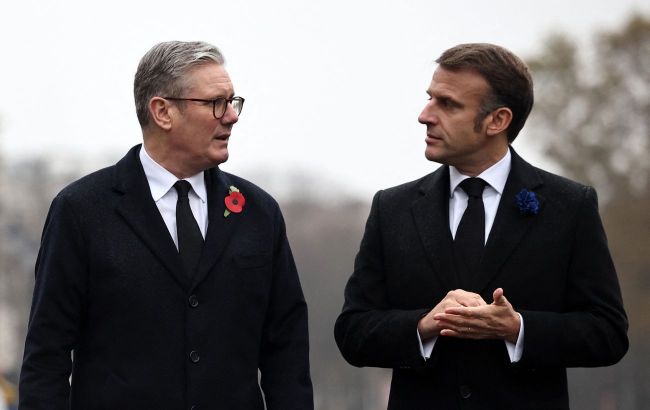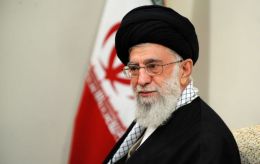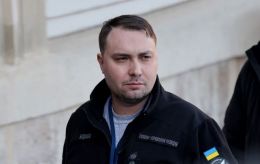French and British leaders reaffirm support for Ukraine amid Trump's victory
 Photo: France and United Kingdom will continue to support Ukraine (Getty Images)
Photo: France and United Kingdom will continue to support Ukraine (Getty Images)
French President Emmanuel Macron and British Prime Minister Keir Starmer reaffirmed their support for Kyiv during talks in Paris, Reuters reports.
Macron's office reported that the two leaders discussed the situation in Ukraine on the sidelines of a ceremony held on November 11 to mark the anniversary of Armistice Day, which ended World War I in 1918.
“Concerning the situation in Ukraine, the two leaders reaffirmed their commitment to coordinate closely, stressing their determination to support Ukraine unwaveringly and for as long as necessary to thwart Russia's war of aggression in Ukraine,” the statement says.
Trump factor
US President-elect Donald Trump has repeatedly criticized the extent of Western aid to Kyiv and promised to end the conflict quickly, without explaining how. His victory in last week's presidential election has raised concerns in Kyiv and other European capitals about the extent of future US commitment to Ukraine.
"Facing the speculation on what could be the positions or initiatives of the new US administration, I think that we absolutely should not prejudge and we have to give (the administration) time,” French Foreign Minister Jean-Noel Barrot says at the Paris Peace Forum.
Barrot said that any initiatives should ensure that Ukraine itself determines the terms and conditions for participation in the negotiation process.
“Ukraine, and beyond that the international community, would have too much to lose if Russia imposed the law of the strongest,” he says.
France's defense minister said Sunday that Paris is sending a new batch of long-range missiles to Ukraine to be able to strike Russian positions.
“(Ukraine's) President Volodymyr Zelenskiy has met President-elect Trump numerous times and I don't doubt that a strong relationship will be established with the new administration...” Barrot said on Monday.
Finnish Foreign Minister Elina Valtonen said at the same forum that it was time for Ukraine's allies to step up their analysis of Russia.
“It's not only about Ukraine. The threat that Russia is causing for humankind is existential and does not start or end with Ukraine,” said Valtonen, whose country joined NATO last year in response to Russia's invasion of Ukraine in February 2022.
Earlier, the Washington Post reported that Putin and Trump spoke on November 7 and discussed the goal of peace in Europe. According to the agency, Trump advised Putin not to escalate the war in Ukraine and reminded him of the significant US military presence in Europe.
However, on November 11, the Kremlin denied the information about the conversation.

